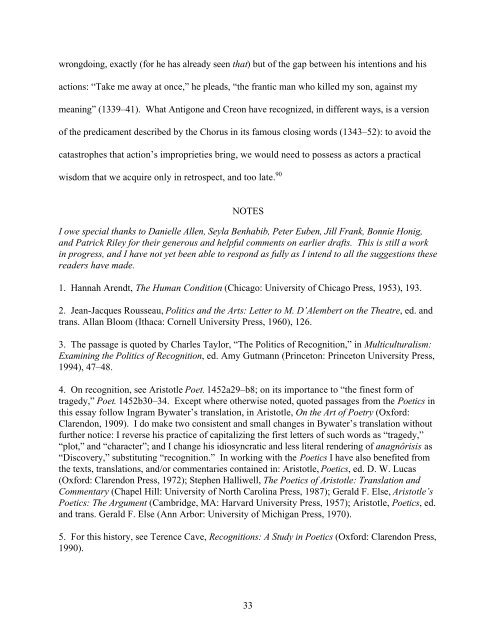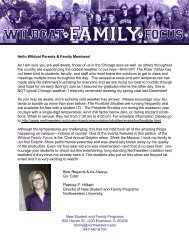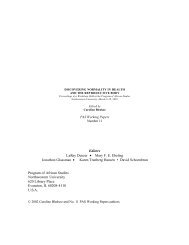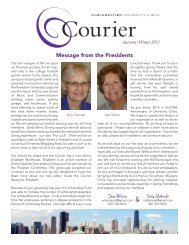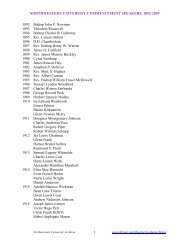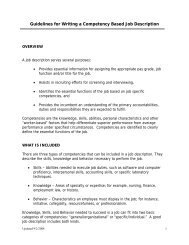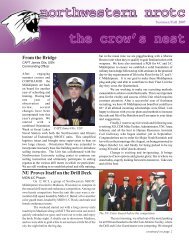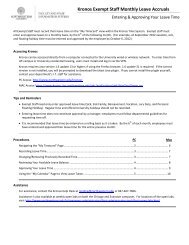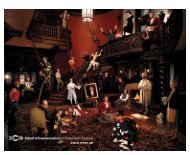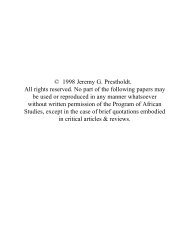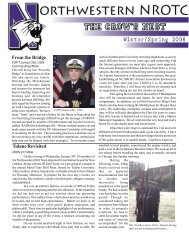TRAGIC RECOGNITION: ACTION AND IDENTITY IN ANTIGONE ...
TRAGIC RECOGNITION: ACTION AND IDENTITY IN ANTIGONE ...
TRAGIC RECOGNITION: ACTION AND IDENTITY IN ANTIGONE ...
You also want an ePaper? Increase the reach of your titles
YUMPU automatically turns print PDFs into web optimized ePapers that Google loves.
wrongdoing, exactly (for he has already seen that) but of the gap between his intentions and his<br />
actions: “Take me away at once,” he pleads, “the frantic man who killed my son, against my<br />
meaning” (1339–41). What Antigone and Creon have recognized, in different ways, is a version<br />
of the predicament described by the Chorus in its famous closing words (1343–52): to avoid the<br />
catastrophes that action’s improprieties bring, we would need to possess as actors a practical<br />
wisdom that we acquire only in retrospect, and too late. 90<br />
NOTES<br />
I owe special thanks to Danielle Allen, Seyla Benhabib, Peter Euben, Jill Frank, Bonnie Honig,<br />
and Patrick Riley for their generous and helpful comments on earlier drafts. This is still a work<br />
in progress, and I have not yet been able to respond as fully as I intend to all the suggestions these<br />
readers have made.<br />
1. Hannah Arendt, The Human Condition (Chicago: University of Chicago Press, 1953), 193.<br />
2. Jean-Jacques Rousseau, Politics and the Arts: Letter to M. D’Alembert on the Theatre, ed. and<br />
trans. Allan Bloom (Ithaca: Cornell University Press, 1960), 126.<br />
3. The passage is quoted by Charles Taylor, “The Politics of Recognition,” in Multiculturalism:<br />
Examining the Politics of Recognition, ed. Amy Gutmann (Princeton: Princeton University Press,<br />
1994), 47–48.<br />
4. On recognition, see Aristotle Poet. 1452a29–b8; on its importance to “the finest form of<br />
tragedy,” Poet. 1452b30–34. Except where otherwise noted, quoted passages from the Poetics in<br />
this essay follow Ingram Bywater’s translation, in Aristotle, On the Art of Poetry (Oxford:<br />
Clarendon, 1909). I do make two consistent and small changes in Bywater’s translation without<br />
further notice: I reverse his practice of capitalizing the first letters of such words as “tragedy,”<br />
“plot,” and “character”; and I change his idiosyncratic and less literal rendering of anagnôrisis as<br />
“Discovery,” substituting “recognition.” In working with the Poetics I have also benefited from<br />
the texts, translations, and/or commentaries contained in: Aristotle, Poetics, ed. D. W. Lucas<br />
(Oxford: Clarendon Press, 1972); Stephen Halliwell, The Poetics of Aristotle: Translation and<br />
Commentary (Chapel Hill: University of North Carolina Press, 1987); Gerald F. Else, Aristotle’s<br />
Poetics: The Argument (Cambridge, MA: Harvard University Press, 1957); Aristotle, Poetics, ed.<br />
and trans. Gerald F. Else (Ann Arbor: University of Michigan Press, 1970).<br />
5. For this history, see Terence Cave, Recognitions: A Study in Poetics (Oxford: Clarendon Press,<br />
1990).<br />
33


